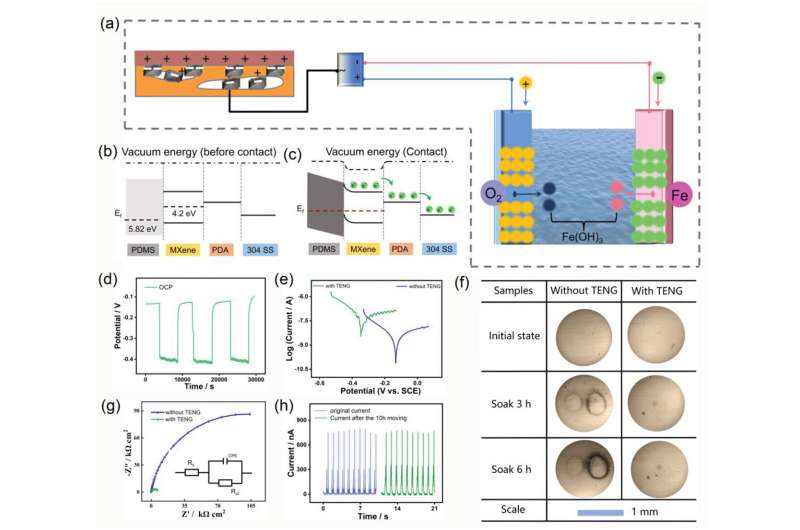Corrosion causes significant losses to various industries. Cathodic protection is used to protect steel in marine industries. Triboelectric nanogenerators (TENG) converts mechanical energy into electricity based on triboelectrification and electrostatic induction. TENG cathodic protection is in line with the requirements of contemporary low-carbon energy conservation.
A research team led by Prof. Wang Xiutong from the Institute of Oceanology of the Chinese Academy of Sciences (IOCAS) has reported a novel TENG made of highly elastic and pressure-resistance sponge, i.e., improved polydimethylsiloxane (PDMS) sponge TENG. The study was published in Advanced Functional Materials on Aug. 3.
It can adapt to forceful impacts in land and water transportation, and can be extended to any shape for harvesting wave and mechanical energy and applied for protecting metal, making the metal materials enter a thermodynamic stable state.
PDMS possesses excellent pressure-resistance ability. In this novel TENG, PDMS sponge was modified by polydopamine and Ti3C2 nanosheet, the output of which was increased by 236% compared with that before improvement. In addition, polydopamine significantly prolongs the lifespan of Ti3C2.
The improved PDMS sponge could withstand hundreds of vehicle passes without deformation. Thus, the proposed TENG based on it could be used to monitor wave grade in the simulating wave environment, reflecting the wave grade by output. Moreover, a relative monitor software was designed.

“We have tried several slat particles as the sacrificial templates for the improved PDMS sponge, and K2HPO4 was most suitable for the 3D interconnected structure. The prepared flexible but strong sponge can harvest energy and act as a force sensor,” said Dr. Xu Hui, first author of the study.
“We believe that green and environmentally friendly TENG protection technologies can be truly applied in the sea,” added Prof. Wang, corresponding author of the study.


